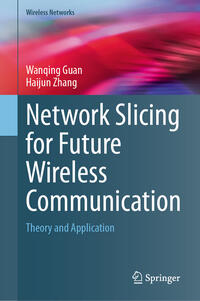
This book comprehensively discusses the development, application and challenges of network slicing technology in wireless communications. Starting with the basic concept and enabling technologies of network slicing, this book introduces how to integrate AI (Artificial Intelligence) technology into the end-to-end deployment, resource allocation and performance enhancement for multi-tenant slicing. An in-depth exploration of managing multi-domain slices deployed in the federated infrastructure networks is presented, including on-demand cooperation among multiple infrastructure networks, distinct slice deployment, hierarchical slice orchestration and fast slice adaption. As a guide to leveraging AI to enhance traffic performance of multi-tenant slicing and customize resource slicing for industrial scenarios, this book provides insights, modeling, applications and research issues. A holistic perspective on prominent role of network slicing in managing wireless network resources is provided as well. Overall, network slicing as a key technology of wireless networks, enables to satisfy differentiated service demands of multiple tenants from vertical industries with the same shared physical infrastructure network. As future wireless networks are expected to facilitate the evolution of vertical industries, various vertical enterprises as tenants require an intelligent network slicing paradigm to provide highly customizable services. AI-based management system for network slicing excel at deploying slices rapidly, allocating resources efficiently and avoiding service quality degradation. With the increasing diversity of service demands and complexity of communication environment, incorporating AI into network slicing is a necessity for improving flexibility and automation of resource management. This book targets advanced-level students in information and communication sciences as a secondary textbook. Researchers and industry professionals working in various areas, such as wireless communication systems, network management and orchestration, resource allocation and AI-enabled wireless networks will also find this book useful as reference book.